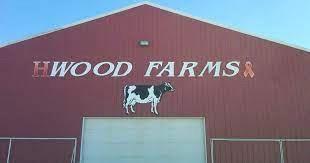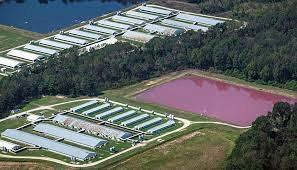 A recent posting on Food Safety, a newsletter circulated by Marler Clark, LLP, documented action by the EPA in response to a lawsuit filed by the Center for Food Safety. The posting by Attorney Brittany Rowe was an assignment in the class on Food Safety Litigation taught by Bill Marler and Denis Stearns in the LL.M program in Agriculture and Food Law at the University of Arkansas School of Law.
A recent posting on Food Safety, a newsletter circulated by Marler Clark, LLP, documented action by the EPA in response to a lawsuit filed by the Center for Food Safety. The posting by Attorney Brittany Rowe was an assignment in the class on Food Safety Litigation taught by Bill Marler and Denis Stearns in the LL.M program in Agriculture and Food Law at the University of Arkansas School of Law.
The case in question involved a filing against Wood Farms in the U. S. District Court for the Northern District of New York alleging violation of the Clean Water Act. Wood Farms is a Concentrated Animal Feeding Operation (CAFO) holding approximately 2,000 dairy cows and replacement heifers. The plaintiff produced evidence that lagoons operated by Wood Farms released effluent into waterways ultimately entering the St. Lawrence River in contravention of the Clean Water Act. Wood Farms is a serial offender, having been cited in 2008 and 2014 for violations of their National Pollutant Discharge Elimination System (NPDES) permit.
In 2021, the EPA responded to a lawsuit filed by the Food and Water Watch and other environmental organizations noting that the Agency was not enforcing requirements of NPDES permits governing the operation of CAFOs, representing violations of the Clean Water Act. The EPA settled with the plaintiffs and agreed to regulate CAFOs and specifically:
 Revising the agricultural storm-water exemption.
Revising the agricultural storm-water exemption.- Enhanced monitoring of discharge.
- Reevaluation of the effluent limitation guidelines.
- Ensuring that all CAFOs have NPDES permits.
In terms of an April 2023 response by the EPA to petitions filed with the Ninth Circuit Court of Appeals, the EPA will pay greater attention to CAFOs with implications for all intensive livestock production including but not limited to dairy, beef and hog operations. This presumes scrutiny of egg production complexes for compliance with the Clean Water Act.